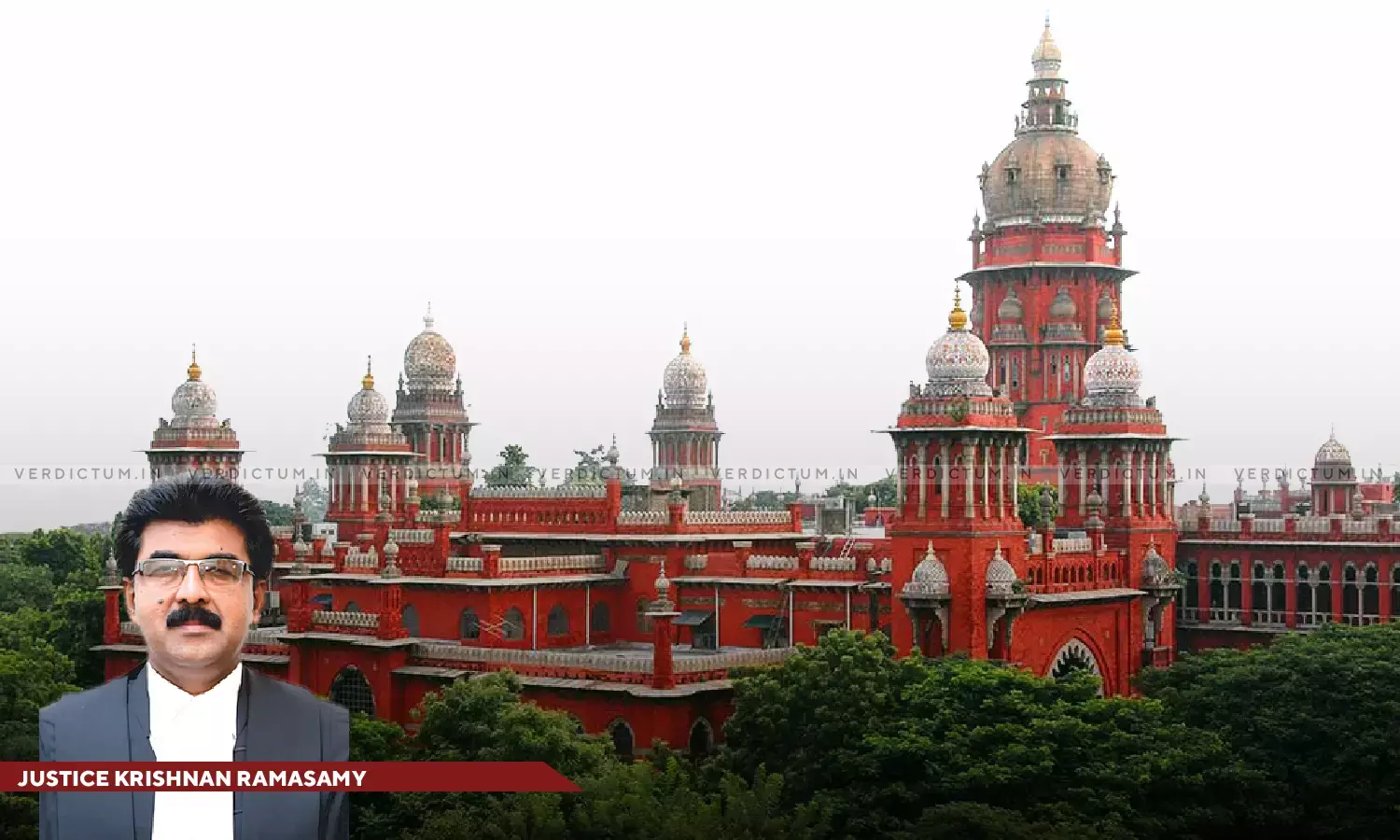“Amounts To Annihilate The Culture”: Madras HC Slams Customs Officer for Seizing ‘Thali’ From Sri Lankan Woman
"When the officers are conducting search, they have to respect the customs of every religion of this Country," the Court observed.

Justice Krishnan Ramasamy, Madras High Court
The Madras High Court has strongly criticized a Customs officer for seizing a gold "Mangalya Thali Kodi" (sacred necklace) from a Sri Lankan national under the Baggage Rules, 2016, terming the act as "intolerable" and "an annihilation of Hindu customs and culture."
The Court also declared a provision under the Baggage Rules ultra vires for being inconsistent with the Customs Act.
The Single Bench of Justice Krishnan Ramasamy, while hearing a petition filed by Sri Lankan citizen Thanushika, observed that it was common for newly married women to wear significant quantities of gold, including thali chains weighing up to 16 sovereigns.
The Court held that Customs officers must respect religious and cultural traditions while conducting searches. "When the officers are conducting search, they have to respect the customs of every religion of this Country," it said.
Advocate A. Simiyon Raja appeared for the Petitioner, and Senior Standing Counsel M. Santhanaraman appeared for the Respondent.
Court's Strong Rebuke to Customs Officer
The Bench noted that the officer had forcefully removed the petitioner's thali without considering its cultural and religious significance. The Court remarked that such actions could not be tolerated under any circumstances. "Wearing 'thaalikodi' is part of this country's culture, and forcefully snatching it from a passenger amounts to annihilating that culture," the Court held.
The Court further stated that the officer's conduct suggested an ulterior motive and directed the Principal Chief Commissioner of Customs (Tamil Nadu and Puducherry) to conduct an inquiry and take appropriate legal action against the officer.
Baggage Rule Declared Ultra Vires
The Court also ruled that Rule 3(b) of the Baggage Rules, 2016—restricting gold worn on a person to a value of Rs. 50,000—was ultra vires as it contravened Section 79 of the Customs Act, which explicitly excludes jewels worn by passengers from baggage regulations.
The Court held that the Rule-making authority had overstepped its jurisdiction by imposing restrictions beyond the scope of the statute. "The statute only deals with baggage, and the rule must be confined to baggage, not personal jewelry worn by a person," the Court clarified.
It further emphasized that Parliament had intentionally excluded worn jewelry from Customs regulations, and any changes should come through legislative amendments, not executive rule-making.
Background of the Case
The petitioner, Thanushika, had arrived in Chennai with her family for a pilgrimage before traveling to France. She was allegedly harassed by Customs officers at the airport, who questioned her about her jewelry. Despite explaining that the gold belonged to her and was part of her wedding ornaments, the officers forcibly removed her thali and confiscated her jewelry.
She filed a writ petition seeking the return of her gold ornaments, arguing that the seizure was unlawful. The Customs Department contended that, as a foreign national, she was not eligible to bring gold jewelry into India as baggage. However, the Court rejected this argument, ruling that the Baggage Rules did not apply to gold jewelry worn on a person.
The Court also found that the Customs Department had failed to specifically deny allegations of mistreatment, leading to an inference of acceptance under Section 58 of the Evidence Act, 1872, and the Writ Rules, 2021. The Court further held that the mahazar (seizure report) contained false information and was prepared to falsely implicate the petitioner.
Final Order
Concluding that the confiscation order was passed without due process or proper application of mind, the Court quashed the order and directed the Customs authorities to return the seized jewelry within seven days. It also emphasized that Customs officials must act within the legal framework and respect cultural sensitivities while discharging their duties.
Cause Title: Thanushika v. The Principal Commissioner of Customs & Anr. [W.P.No.5005 of 2024]
Click here to read/download the Order

